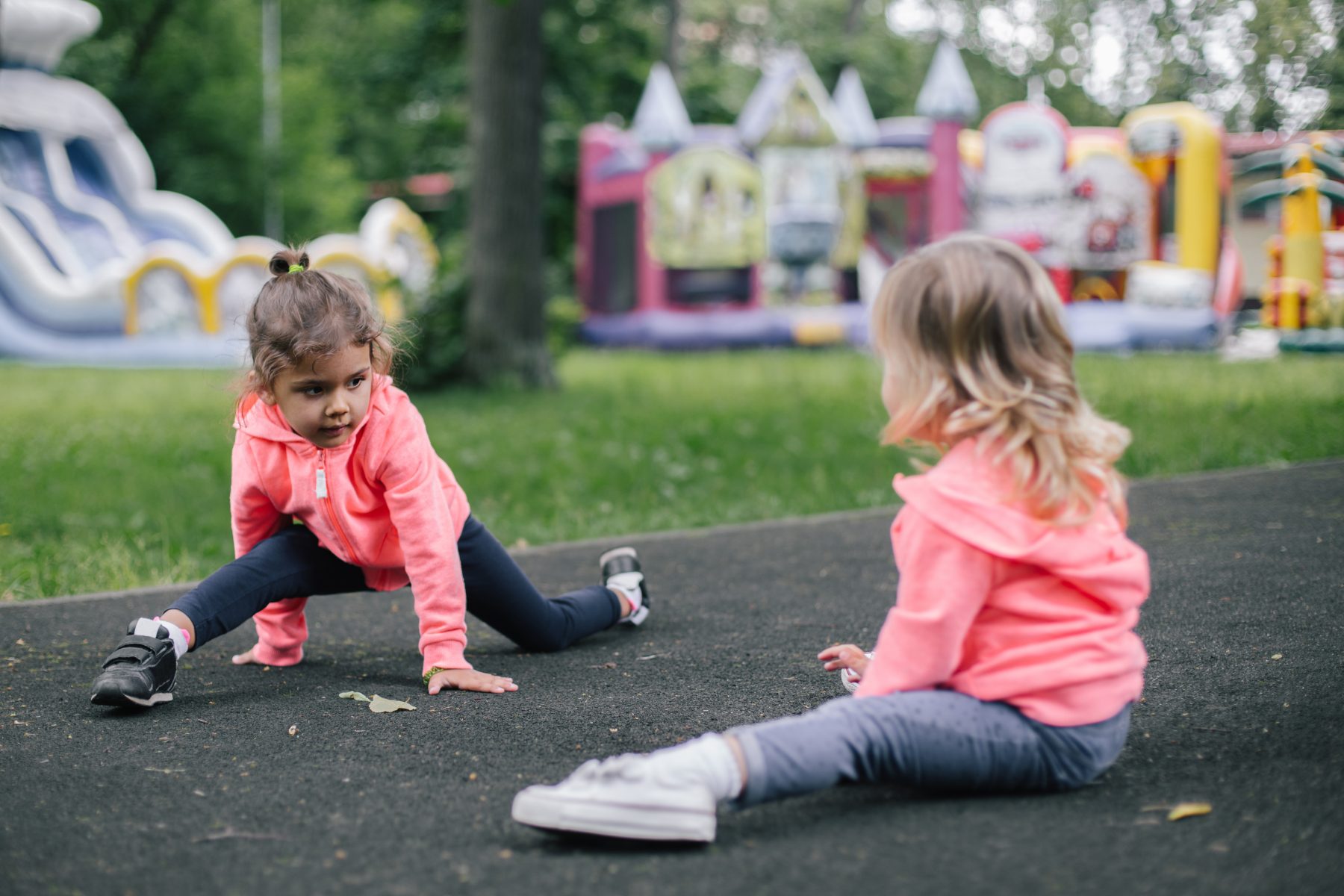Pioneering new study confirms developmental benefits of physical literacy in ECEC settings

A new study conducted by researchers at the University of Canberra Institute for Sport and Exercise in collaboration with the Australian College of Physical Literacy has confirmed that the implementation of a structured physical literacy curriculum in early childhood education and care (ECEC) settings is effective in improving not just gross motor skill development but also key cognitive functions such as expressive vocabulary and impulse control in young children.
The randomised control intervention study, named the Active Early Learning (AEL) project, was led by world renowned sports scientist Professor Dick Telford AM and developed by Dr Rohan Telford, with four key objectives:
- To develop an active early learning curriculum specifically for ECEC
- To work with educators and carers to support them in developing and delivering the curriculum within their existing curriculum
- To pass on useful information to parents around the curriculum specifically and physical literacy generally
- To examine the impact of points one to three in using randomised controlled research trials across a network of early learning centres
“This project was particularly exciting to us because it was examining whether the application of a physical literacy curriculum that runs alongside and complements existing ECEC curricula could generate material improvements in developmental outcomes for young children but also examined how the program could be implemented in a sustainable and practical way so that educators and families alike can grow along with the children,” Professor Telford said.
“We enjoyed working with the Australian College of Physical Literacy to bring this important study to life.”
Sixteen long day care centres in Queensland selected for 6 month study
A group of sixteen centres in South East Queensland were selected to be the environments in which the effectiveness of the AEL curriculum would be tested with special attention in the design of the study to incorporate “real world” conditions whereby educators, not researchers, are driving outcomes.
This was made possible by the involvement of an AEL “coach” who actively worked with educators to support them in the implementation of the physical literacy curriculum itself in a manner that was both respectful of existing routines and practices and consistent with coaches visiting centres at least once a week.
“Finding the right balance between achieving the aims of the study and introducing new routines into an educator’s already busy schedule was a key focus for us but by equipping the coaches appropriately and carefully working with the teams in centre we were thrilled to see the model work so well.” Dr Rohan Telford said.
The curriculum itself, anchored in the Early Years Learning Framework and National Quality Standards, consists of four units of activity namely:
- Group time and active transitions: short daily movement experiences to develop fundamental movement skill.
- Movement Education: group activities and experiences to develop one or more components of physical literacy.
- Movement Education extensions: movement experience into other areas of learning such as literacy, numeracy, science, music and dance.
- Challenging play: facilitation of free play time to enhance confidence and encourage Exploration.
During an ideal AEL day, one which would make a solid contribution to child’s physical literacy, a child would engage in one Group time activity of between 5 to 15 minutes, one Movement Education or Movement Education (extension) activity of around 15 to 20 minutes and a daily encouragement of Challenging Play activity.
The study was conducted over a six month period with the sixteen participating centres split into two groups, one of which was designated as “intervention” and the other “control” centres consistent with methodology applied for randomised control trials.
AEL implementation saw not just improved physical literacy but cognitive benefits too
The measurement of the trial’s outcomes was structured around the assessment of four specific domains namely; physical, cognitive, social and psychological, with the cognitive evaluation utilising components of assessment measures included in the well regarded Early Years Toolbox collection and social, including part of the psychological evaluation, via a strengths and difficulties questionnaire completed by researchers.
As the first manuscripts are being prepared for peer-review publication, the authors have indicated that beneficial outcomes emerged in several areas. In the physical domain, compared with the control group centres, children undertaking the AEL curriculum became more physically active and showed better motor skill development. In the psychological and social domains, the AEL group benefited with enhanced self-control and expressive vocabulary communication.
Professor Telford said “We are thrilled with the results from the randomised trial. When viewed in terms of parental or teacher expectations, the level of improvement over such a short period was highly valued. By demonstrating a link between physical literacy and cognitive development via the application of a structured physical literacy program in early childhood settings we now have the means to boost overall development in young children to better prepare them for school and beyond.”
“Looking forward we are excited to be on the verge of submitting our first papers for peer review and progressing this important body of research with an expectation that we can publish the full report in early 2021.”
In the meantime the Australian College of Physical Literacy team have made themselves available to discuss the study in more detail. Interested parties should contact Andrew Smith on 0418 741 271 or email at andrew@acpl.education
Popular

Workforce
Policy
Quality
Practice
Provider
Research
ECEC must change now, our children can’t wait for another inquiry
2025-07-02 07:47:14
by Fiona Alston

Events News
Workforce
Marketplace
Practice
Quality
Provider
Research
An exclusive “Fireside Chat” with ECEC Champion Myra Geddes
2025-07-01 11:25:05
by Fiona Alston

Workforce
Practice
Provider
Quality
Research
Supporting successful transitions: Big moves, big feelings
2025-06-26 11:00:30
by Fiona Alston









